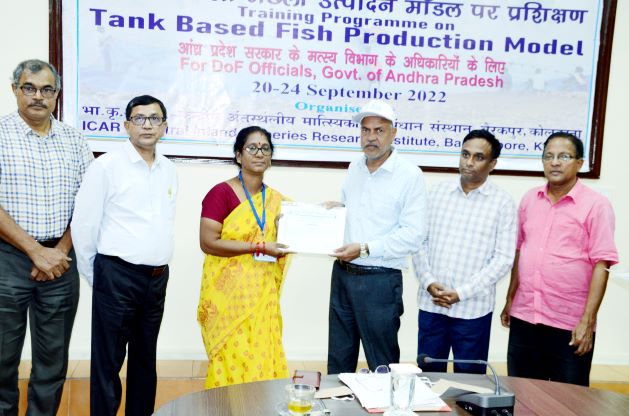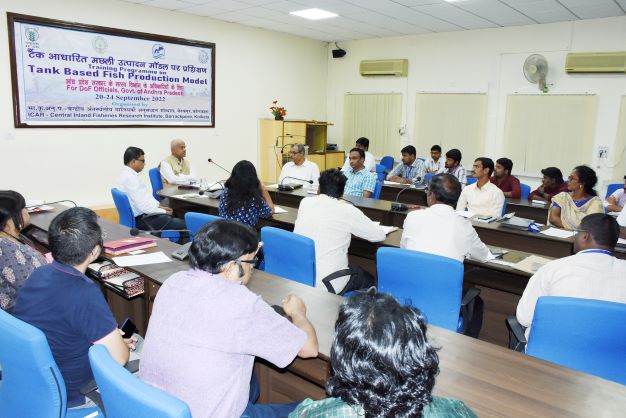Overview
Publications
Recruitment
Intranet
CIFRI Corners'
The Government of Andhra Pradesh has identified fisheries sector as a growth engine for the state and it promotes rational exploitation and utilization of its fishery resources including the irrigation tanks for fish production. Towards the development of tank fisheries, Andhra Pradesh government has initiated APIIATP project funded by World Bank, under which a total of 243 tanks have been identified for development of fisheries in 12 districts of Andhra Pradesh. ICAR-Central Inland Fisheries Research Institute, Barrackpore organized capacity building cum exposure visit program on “Tank based fish production model” from 20-25, September 2022 for the officials of Fisheries department of Govt. of Andhra Pradesh under the World Bank project-APIIATP. Twenty officials of department of Fisheries of project districts participated in this exposure visit cum capacity building program.




At the end of the training program, the participants expressed their satisfaction and remarked that the knowledge gained by them during the training will help them achieve the targeted production from these tanks.










